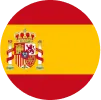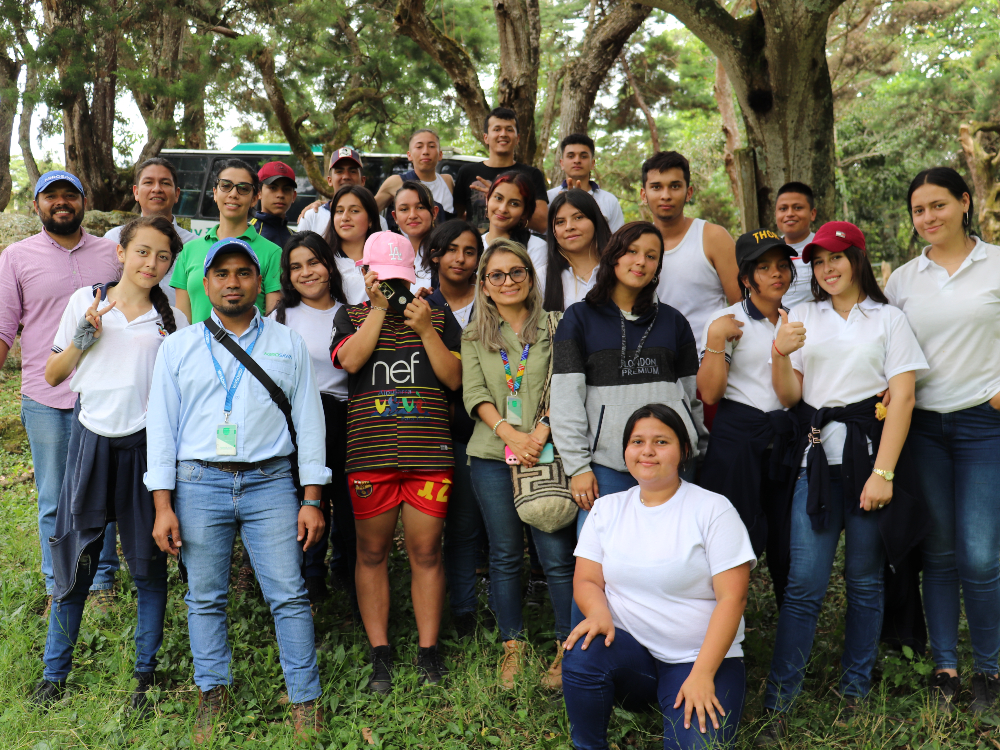- Rural Youth, a project with answers.
- If we include children and young people in the process, they take on the challenge.
Ibagué, Tolima. April 27, 2023. The Colombian agricultural sector, among other difficulties, has a special one. The rural population, mainly the peasant, is aging. Every day fewer young people live in the countryside because they are going to the municipal capitals and especially to the big cities in search of new opportunities, fleeing from the lack of living conditions, looking for educational opportunities, trying to find in the cities everything that in the small suburban countryside districts and predominantly in the dispersed rural area, for various reasons, they don't have.
Consequently, the countryside is left with men and women of advanced ages, assuming the responsibility of producing food and raw materials to satisfy the needs of Colombians without generational renewal, making their way between the difficulty in accessing credit, the scarcity of labor, and difficulties to market what they produce, because in many regions, tertiary roads and rural areas are impassable, especially during rainy seasons.
To counteract migration to cities and the aging of the rural population, it is necessary to focus on generating options for rural youth, not only in agriculture and its link to markets, but also in developing non-agricultural economic activities that these young people can take advantage of.
The Ministry of Agriculture and Rural Development (MADR), with AGROSAVIA as its executing ally, is carrying out a project with agricultural schools in the country's remote municipalities. This project aims to generate opportunities for rural youth for generational integration in the countryside by strengthening training environments and linking technologies according to local needs through articulation spaces.
AGROSAVIA makes available to this strategy all its capacity and commitment to the agricultural sector to assume the challenge of generating and linking technological offers with a differential focus on gender, age, ethnicity, and peasant agriculture. In this context, the Corporation expects to correspond to the guidelines established by the MADR in the project "Support to generate opportunities for rural youth for their generational integration in the countryside."
Currently, there are 20 rural educational institutions, but the exercise is showing successful results. When discussing the project's completion, the first thing that the children (students) and the teachers say is, "Don't leave us alone in this process; keep accompanying us."
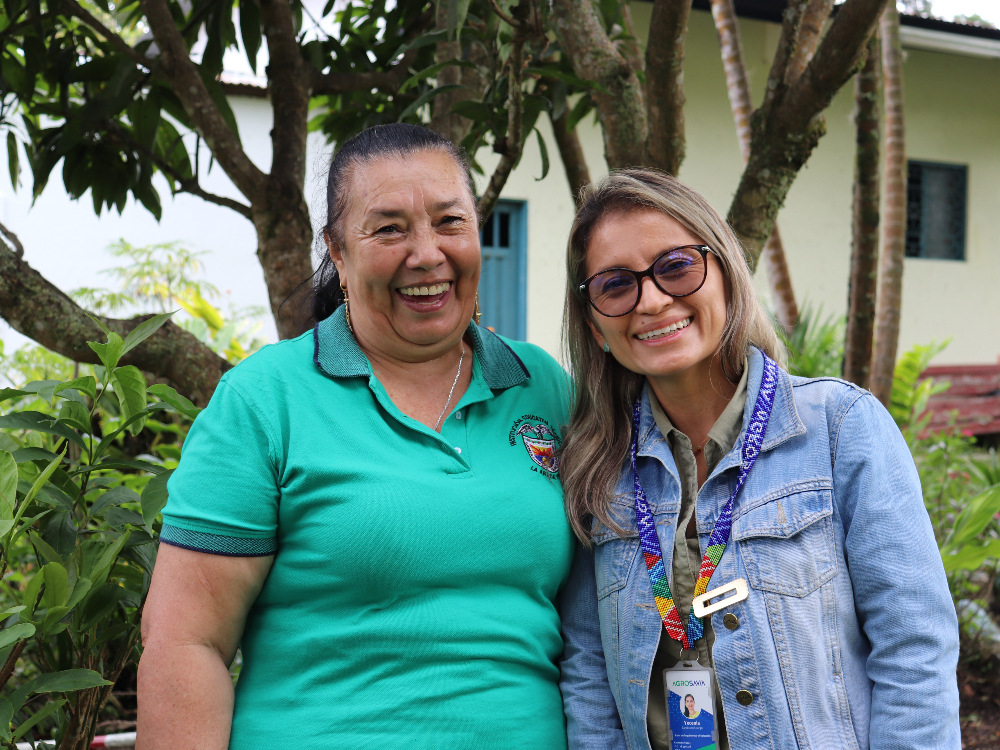
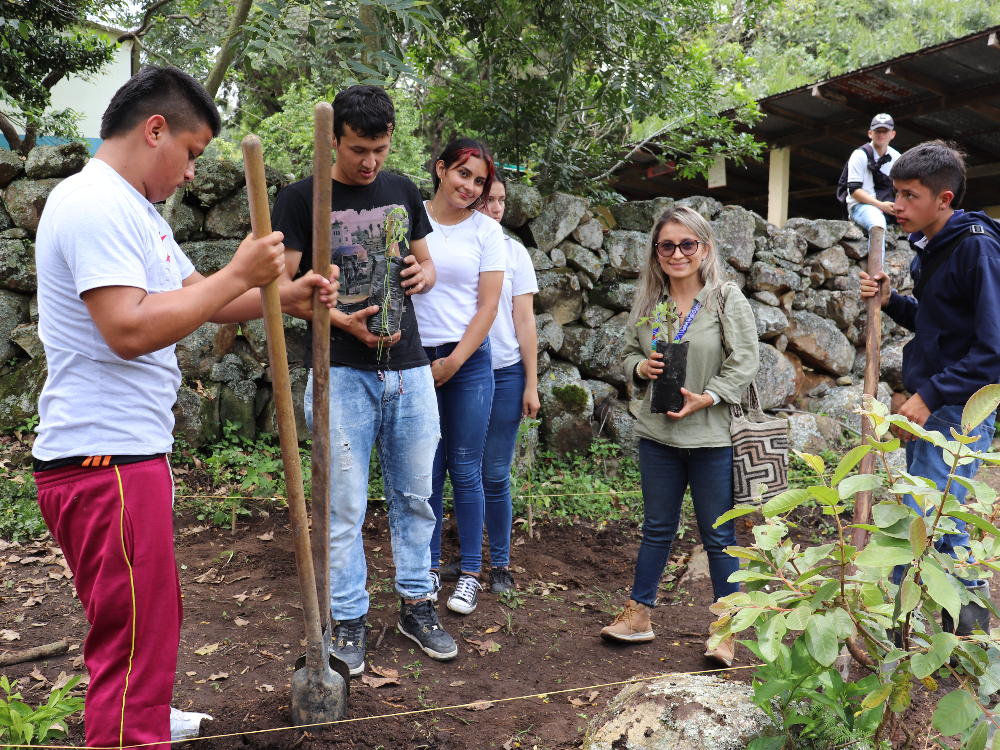
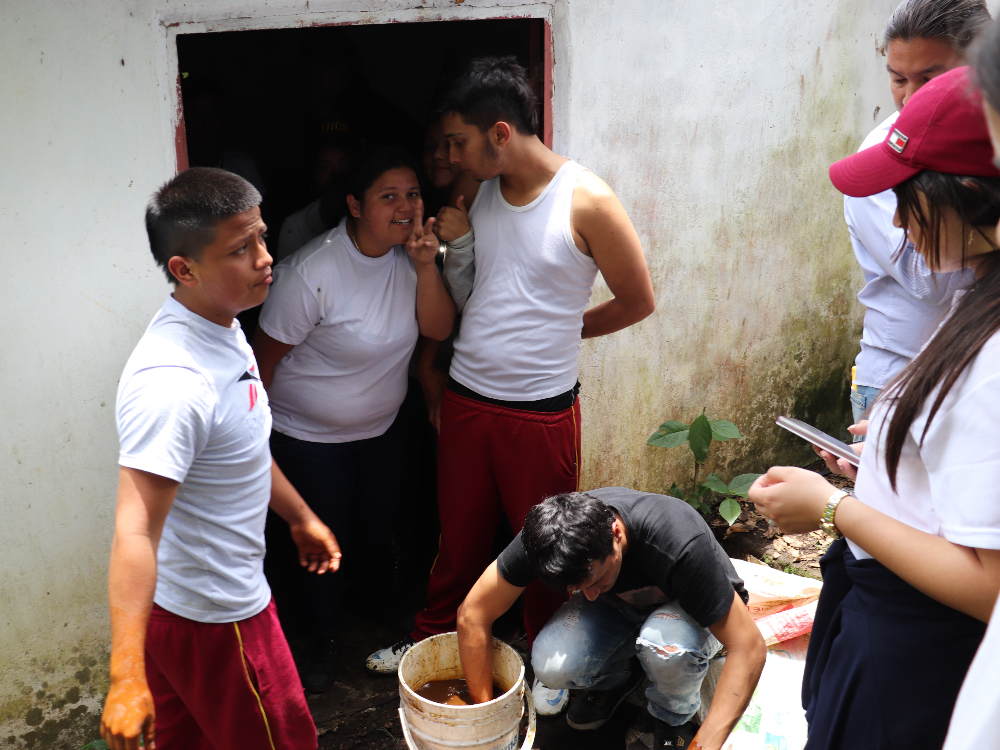
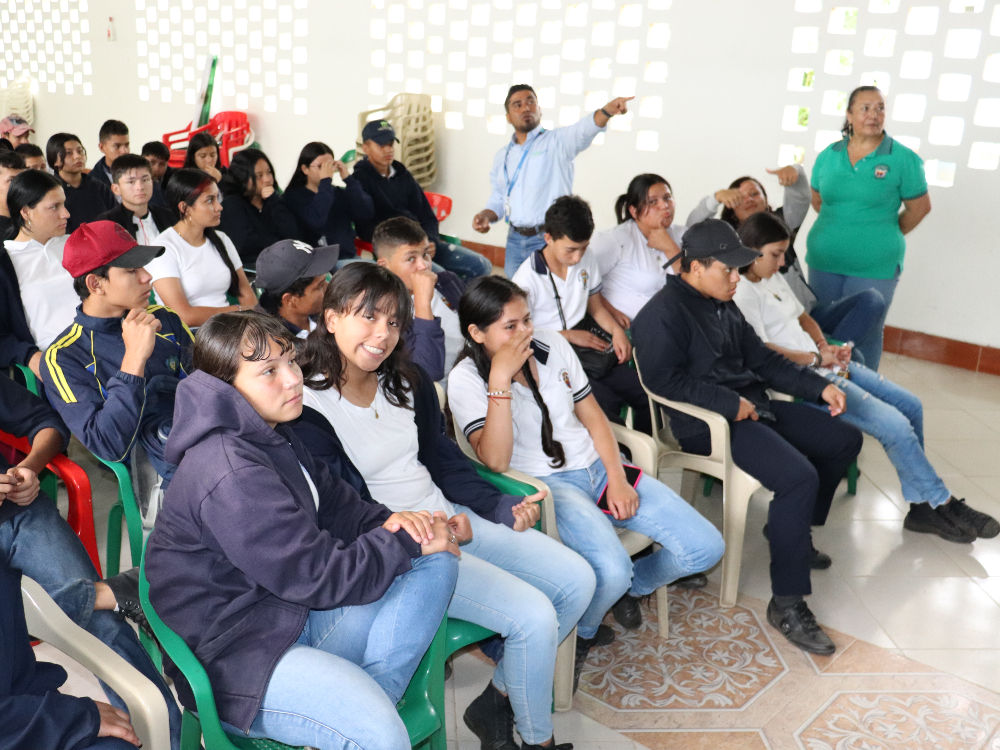
One of the educational institutions where the project is being carried out is La Arada, in the inspection of the same name in the municipality of Alpujarra, department of Tolima. The project in this institution intends to promote knowledge by improving training environments for the production of bee honey, processing of dairy products, production of biofertilizers, and the implementation and use of fodder banks.
AGROSAVIA has an excellent ally in this case. It is SENA. An institution with great strengths, especially in training processes. The exercise developed does not fall into the four lines mentioned. Additionally, the project seeks to give students guidance to perform in a future job around the development of agriculture, entrepreneurship skills, developing leadership capacity, knowledge, and procedure in managing different agricultural activities.
In addition to training children and young people, a fodder bank and a pasture rotation system will be established in the educational institution to manage pastures and animal feed technically. An apiary for honey production will be established and customized with the necessary training for hive management, guaranteeing the bees' welfare and the beekeepers' safety. Furthermore, also the quality of bee products.
Likewise, a basic laboratory for dairy processing will be established, and students will be trained to obtain quality products, adding value to agricultural products obtained in the region.
The final claim is that the young people and children of the Educational Institution of La Arada discover that in the countryside, they can produce better, with quality, give added value, and provide an enormous service to society and the country, obtaining a good income and with the advantages of living in the countryside.
Samuel González Castro, a tenth-grade student at the educational institution of La Arada, said, "We are from the countryside, my grandparents, my parents. They all know how to work in the fields, they have done it all their lives, but in this project, we are learning to do it by applying technology."
- More information here:
- Jorge Sarasty Petrel
- Communications, Identity and Corporate Relations Professional
- Research Center Nataima
- Communications, Identity and Corporate Relations Advisory Office
- jsarasty@agrosavia.co
- AGROSAVIA

